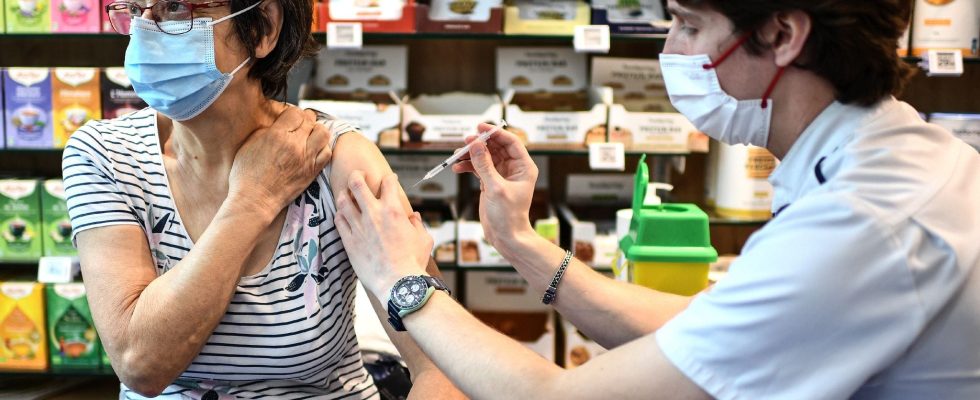Confinements and curfews to prevent the spread of the virus, massive vaccination campaign… How effective were the unprecedented measures taken during the Covid-19 pandemic in France? This is the question that researchers from the University and University Hospital of Bordeaux, the National Institute of Health and Medical Research (Inserm) and the National Institute for Research in Science and Technology are trying to answer. of digital (Inria), in a study published Tuesday February 6 in the journal Epidemics.
“Significant effect” of confinement
Four years after the start of the pandemic, the study evaluates the effect of these exceptional measures, while taking into account their societal and psychological repercussions, in order to prepare for possible future epidemics. Associated with researchers from Canadian McGill University, French scientists worked based on mathematical modeling of data available in France between March 2020 and October 2021.
They conclude that “the most restrictive measures, such as confinement and curfew” had “a significant effect” on reducing transmission: up to 84% during the first confinement. The researchers also estimate that the curfew established earlier, at 6 p.m., had more effect than that of 8 p.m., limiting 68% and 48% of transmissions respectively. School closures have had a more limited effect, reducing contagions by 15%.
159,000 additional deaths without vaccine
The study also reveals the effectiveness of vaccines, by simulating a scenario without vaccination, over a period up to October 2021. The result is clear: the data predicts that, without a vaccination campaign, there would have been 159,000 deaths. and 1.48 million additional hospitalizations in France. This is twice as many victims as the pandemic, which caused 116,000 deaths and 460,000 hospitalizations.
“Although the exercise is complex to estimate the number of people saved by a specific intervention, all studies find a major impact of confinement and vaccination,” analyzes Rodolphe Thiébaut, professor of public health at the Bordeaux Population research center. Health and responsible for this research. He explains that these data are “consistent with other studies already published, in particular by the WHO”.
Preventable deaths with earlier action
Beyond validating the effectiveness of social distancing measures, the researchers believe that if they had been taken earlier, a significant number of patients could have been avoided. If vaccines had been available after a hundred days, as was the initial wish of the Coalition for Innovations in Epidemic Preparedness (Cepi, resulting from the Davos Forum), almost a third of deaths ( or 71,000) and three quarters of hospitalizations (384,000) could have been avoided.
“This result emphasizes the importance of rapid and early deployment of vaccines,” further declares Professor Rodolphe Thiébaut, who calls for a vaccine development strategy in order to anticipate future pandemics. In mid-January, the WHO estimated that anti-Covid vaccines had saved at least 1.4 million lives in Europe.
The study also estimates that a lockdown in France a week earlier could have avoided 20,000 additional deaths. Already in September 2020, the president of the Scientific Council during the Covid crisis, Jean-François Delfraissy, regretted not having insisted on confining France a few days earlier. “It is obviously a heavy decision to confine an entire country,” continues Rodolphe Thiébaut, “but these results can contribute to rapid decision-making,” indicates the professor of public health.
